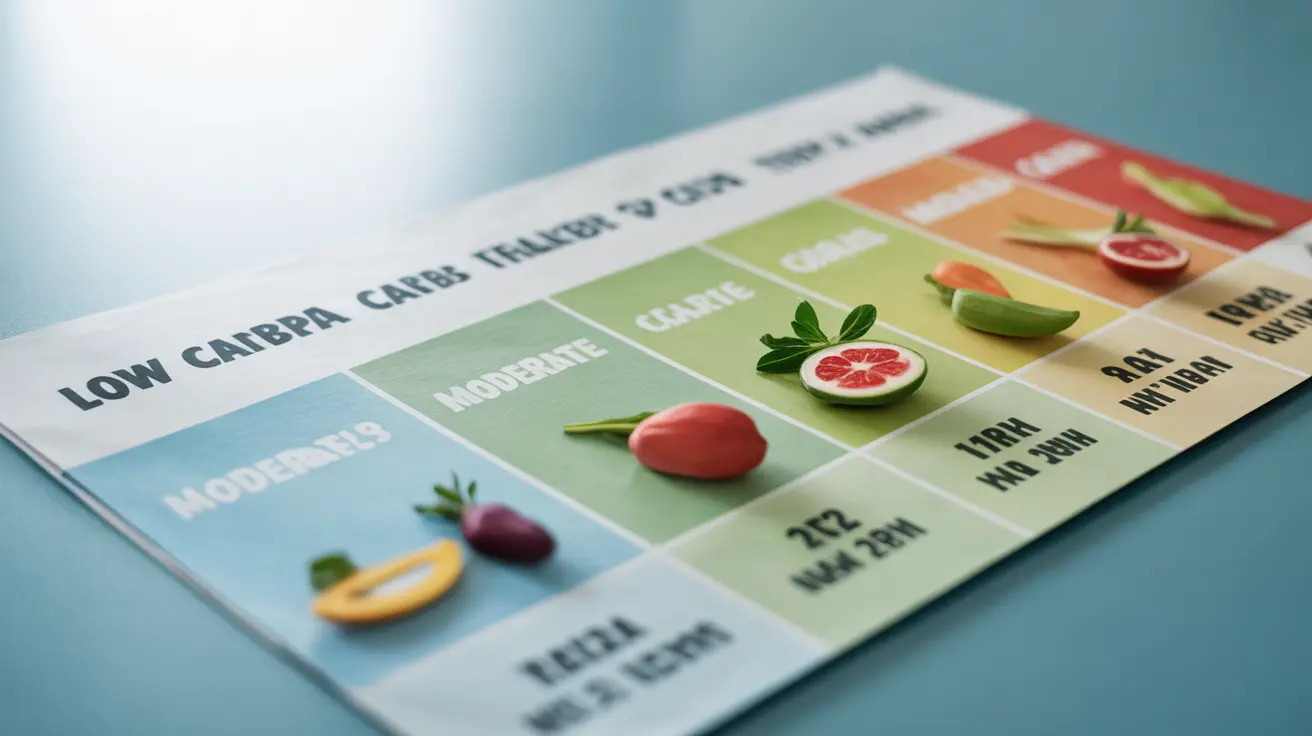Managing type 2 diabetes effectively requires careful attention to carbohydrate intake, as carbs directly impact blood sugar levels. Understanding how many carbs to eat daily can make a significant difference in blood glucose control and overall health outcomes for people with type 2 diabetes.
While individual needs vary, establishing appropriate carbohydrate targets and learning to track them effectively can help achieve better diabetes management and potentially reduce medication dependence. Let's explore evidence-based guidelines for daily carb intake and how to personalize them for your needs.
Understanding Carbohydrate Recommendations for Type 2 Diabetes
The American Diabetes Association no longer prescribes a one-size-fits-all carbohydrate recommendation, acknowledging that individual needs vary. However, research suggests that most people with type 2 diabetes benefit from consuming between 45-60 grams of carbohydrates per meal, or approximately 130-180 grams per day.
Some diabetes specialists advocate for lower carbohydrate approaches, particularly for people aiming to improve blood sugar control or lose weight. These approaches might recommend:
- Moderate low-carb: 100-150 grams per day
- Low-carb: 50-100 grams per day
- Very low-carb: Under 50 grams per day
Benefits of Reducing Carbohydrate Intake
Following a lower-carbohydrate eating pattern can offer several advantages for people with type 2 diabetes:
- Better blood sugar control
- Reduced medication requirements
- Improved weight management
- Lower triglyceride levels
- Better A1C readings
Research shows that reducing carbohydrate intake can lead to significant improvements in blood sugar control within weeks, often resulting in decreased medication needs under proper medical supervision.
Personalizing Your Carbohydrate Intake
Monitoring Blood Sugar Response
The most effective way to determine your ideal carbohydrate intake is through careful blood glucose monitoring. Track your blood sugar before meals and 2 hours after to understand how different amounts of carbohydrates affect your levels.
Factors to Consider
Several factors influence your optimal carbohydrate intake:
- Activity level
- Current medications
- Weight management goals
- Overall health status
- Personal preferences and lifestyle
Understanding Net Carbs vs. Total Carbs
When tracking carbohydrates, it's important to understand the difference between net and total carbs. Total carbs include all carbohydrates in a food, while net carbs subtract fiber and sugar alcohols. For most people with type 2 diabetes, tracking total carbohydrates provides the most reliable approach for blood sugar management.
Frequently Asked Questions
How many carbohydrates should a person with type 2 diabetes eat daily to manage blood sugar?
Most people with type 2 diabetes should aim for 130-180 grams of carbohydrates per day, divided into 45-60 grams per meal. However, some may benefit from lower amounts, particularly when working to improve blood sugar control or lose weight.
What are the benefits of a low-carb or very low-carb diet for people with type 2 diabetes?
Low-carb diets can help improve blood sugar control, reduce medication requirements, support weight loss, lower triglycerides, and improve A1C levels. These benefits often become apparent within several weeks of reducing carbohydrate intake.
How can I determine the right carb intake for my type 2 diabetes based on blood sugar monitoring?
Monitor your blood sugar before meals and 2 hours after eating to observe how different amounts of carbohydrates affect your levels. Work with your healthcare provider to establish target ranges and adjust your carb intake based on these readings.
What is the difference between net carbs and total carbs, and which should people with type 2 diabetes track?
Total carbs include all carbohydrates in food, while net carbs subtract fiber and sugar alcohols. Most people with type 2 diabetes should track total carbs for more reliable blood sugar management, as this method is more straightforward and generally more effective.
Can reducing carbohydrate intake help me lower or stop diabetes medication?
Yes, reducing carbohydrate intake can often lead to improved blood sugar control and reduced medication needs. However, never adjust or stop medications without consulting your healthcare provider, as changes must be carefully monitored and managed.




